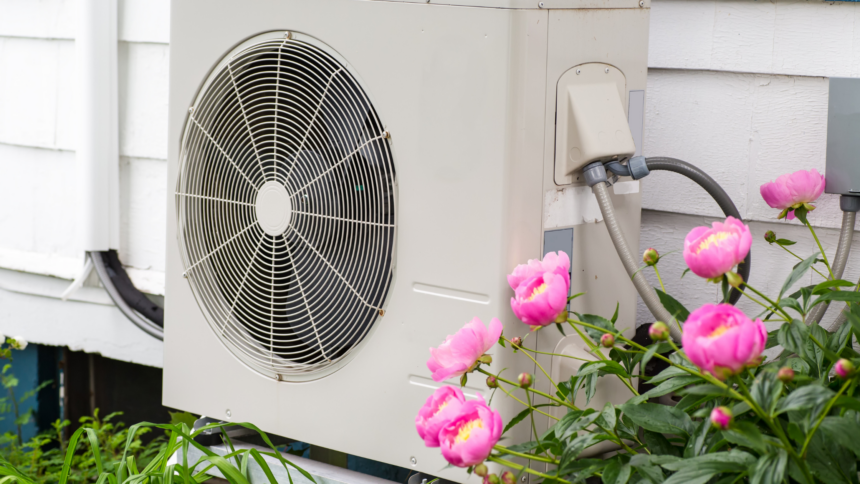Heat pump vs. furnace: which is right for you?

When it comes to heating, most homes have a choice between a heat pump or a furnace. Although they both accomplish the same goal of heating your home, they do so in different ways. For instance, furnaces generate heat by burning oil or natural gas while heat pumps use electricity. Here’s a quick breakdown of each type of heat system, and some of the factors you should consider when making your decision, like location, energy efficiency, cost, and reliability.
Heat Pumps
What is a heat pump?
A heat pump doesn’t burn fuel to generate heat. Instead, it uses electricity to pull heat from the outside air and transfer it into your home. A heat pump basically acts as a reverse air conditioning unit and, for that reason, doubles as an air conditioner when in cooling mode.

Heat pump benefits
Unless the temperature regularly drops below freezing, a heat pump is generally more energy-efficient than a gas or electric furnace. This allows you to enjoy a comfortably heated home with a lower energy bill during the colder months. In addition to being energy-efficient, heat pumps are typically easy to install and operate quietly.
During the summer months, your heat pump can also act as an air conditioner, making this a more versatile product compared to a furnace. In terms of air quality, heat pumps don’t produce CO, so you don’t have to worry about carbon monoxide leaks.
Heat pump concerns
Heat pumps typically produce less heat compared to furnaces, and may not be the ideal depending on how warm you like to keep your home. In addition, heat pumps aren’t as efficient if temperatures reach below freezing. Since heat pumps use air from the outside, colder temperatures mean that your heat pump will struggle to generate warm air. There are systems that work alongside heat pumps to generate warmth by moving the air over heating coils, but they typically use a lot of energy.
Why should you choose a heat pump?
Where you live plays a large part in whether or not a heat pump vs. furnace is right for your home. If you live in an area with mild winters, a heat pump is a great option. Southeastern climates are ideal for heat pump use. This is also a better option if you’re in the market to replace your existing air conditioner since heat pumps can double as both. In short, if you live in a climate that doesn’t see long, cold winters, a heat pump is typically a better option.
Furnaces
What is a furnace?
Furnaces generate warm air and then distribute it throughout your home by burning fuel. Because furnaces use fuel to create heat, they blow much warmer air compared to heat pumps. There are four main components to a furnace: burners, heat exchangers, a blower, and a flue that acts as the exhaust. Furnaces can run on natural gas or oil, and depending on where you live, there are hybrid options available that create heat with dual fuel use.

Furnace benefits
Furnaces are typically cheaper compared to heat pumps, but the price varies depending on unit size and features. If you prefer hot, toasty temperatures inside your home, a furnace might be the better option for you. While heat pumps are more energy efficient, furnaces have fewer moving parts, which means there’s less heating repair and maintenance involved and fewer pieces that could potentially malfunction.
Furnace concerns
While today’s furnaces are much more energy-efficient compared to a decade ago, they still don’t compare to the efficiency of a heat pump. Homes with a furnace also require a separate unit for air conditioning, while heat pumps act as a two-in-one device.
Why should you choose a furnace?
Your climate is extremely important when choosing between a heat pump vs. furnace. If you experience incredibly cold winters with temperatures below freezing, a furnace is the best option for you. Because furnaces don’t depend on outdoor air to produce heat, they produce much warmer air for homes located in cold temperature climates compared to heat pumps.
Frequently Asked Questions
What is the difference between a heat pump and furnace?
Heat pumps both heat and cool homes by moving warm air in or out, while furnaces burn fuel to create and distribute warm air throughout a home. Heat pumps operate most efficiently in warmer climates with mild winter months, while furnaces thrive in colder climates with temperatures that reach below freezing.
How much do furnaces typically cost to install new?
Furnace installation can range between $2,000 to upwards of $7,000, depending on the furnace and company you are using to install the unit.
What does a furnace do?
A furnace burns fuel to create and distribute hot air throughout a house. It uses four main components: a burner, heat exchanger, blower and flue to produce hot and toasty temperatures inside the home during cold winter months.